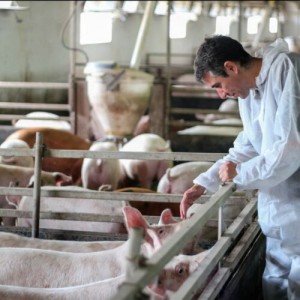Colorado veterinary professionals outline access, workforce challenges and potential solutions
One out of four households in the U.S. has experienced trouble accessing veterinary care, according to a 2018 report by the Access to Veterinary Care Coalition. Colorado State University’s Animal-Human Policy Center surveyed Colorado veterinary professionals to understand their perceptions of access-to-care and workforce challenges and potential solutions.
More than 700 veterinary professionals responded to the survey, and the majority believe that lack of access to care is a problem. They identified as challenges the need for more veterinary technicians, cost barriers to care and mental health impacts from not being able to provide care to all patients.
Veterinary professionals also weighed in on five possible policy solutions: grants or programs to help cover the cost of care, introduction of a mid-level practitioner, expanding use of telemedicine, loan repayment or educational assistance for veterinary professionals, and clarifying technician roles and advancing their career pathways.
“Veterinary professionals have mixed views on various policy options,” said Rebecca Niemiec, director of the Animal-Human Policy Center. “But one thing that was clear is that our professionals think that access to care is a critically important issue, and many professionals want something to be done to ensure these workforce and access-to-care challenges are addressed.”
All 5,758 veterinary professionals on the Colorado Department of Regulatory Agencies list of licensed veterinarians and veterinary technicians received the survey. The survey sample included doctors of veterinary medicine, technicians, and practice owners and managers from across the state who work with companion animals, livestock or a combination of both.
The center worked closely with CSU’s College of Veterinary Medicine and Biomedical Sciences (CVMBS) and a task force of stakeholders from industry, academia, government and nonprofits to develop and implement the survey, at the request of Colorado Gov. Jared Polis.
“The data generated by this survey will assist CSU’s CVMBS to set educational goals that meet Colorado’s veterinary needs,” said Sue VandeWoude, DVM, a University Distinguished Professor and dean of the College of Veterinary Medicine and Biomedical Sciences. “Dr. Niemiec and her staff balanced input from a diverse set of stakeholders to execute and analyze a thoughtful survey that provides important findings. This research comes at a pivotal time for us as we prepare to implement a new veterinary curriculum in 2026.”
Niemiec and co-investigators Veronica Champine, Danielle Frey, DVM, and Allyce Lobdell are now surveying public perspectives on access to veterinary care and potential solutions. Niemiec will present survey results to state legislators Oct. 27.
Key findings from the veterinary professional survey include:
- Veterinary professionals in Colorado frequently must divert clients because they don’t have sufficient staff.
- Veterinary professionals in Colorado frequently must decline care for patients or euthanize pets due to cost being a barrier to care.
- Not being able to provide access to care for all patients affects the majority of veterinary professionals’ mental health.
- DVMs/practice managers want more veterinary technicians but are having trouble finding them; they reported that almost twice the number of technicians they currently employ would be ideal.
- The majority (69%) were interested in participating in a grant program to expand access to care.
- About half believed that a veterinary professional associate would positively benefit the profession and their practice and increase access to veterinary care.
- The majority (63%) somewhat or strongly believed that expanding the use of telemedicine would increase access to veterinary care for underserved populations.
- There was strong interest, especially among veterinary technicians, in loan-repayment assistance programs for veterinary professionals working in locations with high need, such as shelters and low-cost clinics.
- Additional data is needed from surveys of the public to understand public experiences with accessing care and the barriers they face.
The full report and policy brief can be viewed on the Animal-Human Policy Center website.
“The development of policy will have to be collaborative and will have to take into account these diverse voices, including those veterinary professionals on the front lines,” Niemiec said.
The Animal-Human Policy Center, based in the Department of Human Dimensions of Natural Resources, launched in May to inform policies on animal-human interactions. Niemiec said the center took on this project as one of its first because it’s an important human and animal well-being issue.
“This survey supports prior research that has shown that access to veterinary care nationwide is a huge challenge, and not being able to access care influences pets’ welfare, but also people’s well-being and mental health,” Niemiec said.
Author: Jayme DeLoss
Source: https://source.colostate.edu/














List
Add
Please enter a comment